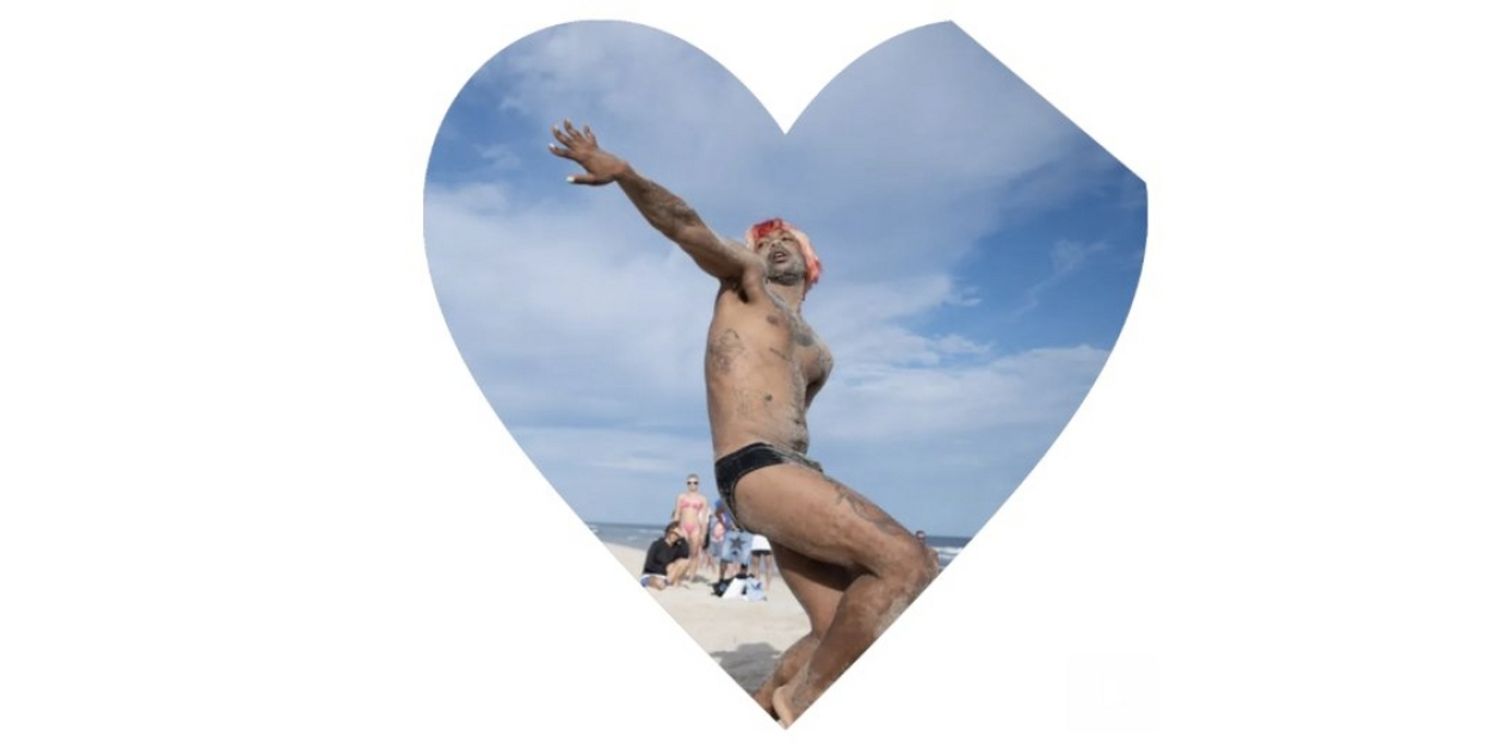Performance Space New York to Present Richard Kennedy's Three-Act Operetta HYBRID PEASANT
The production will run January 11-13.

Performance Space New York (150 1st Ave. 4th floor) will present artist, composer, and choreographer Richard Kennedy’s Hybrid Peasant (January 11 – 13, 8:30pm), a new work rerouting the playful form of the operetta towards a liberatory proposition, creating a tragicomic narrative of a citizens’ uprising within a capitalist doom-zone. Combining opera, dance-theater, poetry, sketch and slapstick comedy to create its speculative hyper-reality, this three-act performance is another explosive disruption of opera’s formalism from the interdisciplinary artist with a long history of engaging and subverting the classical.
Hybrid Peasant delves deep into the enigmatic landscape of the “Nightmerican dream,” experienced through the lives of “the housed citizens of Hirth.” The story unfolds in an exaggerated past-future version of the artist’s hometown of Middletown, Ohio—and within the stratified social landscapes and corroded cityscapes of the Midwest.
With references and points of departure ranging from Stravinsky’s Rite of Spring to SNL’s Weekend Update to found accounts of life in Middletown, OH, the artist shapes a funhouse portrait of contemporary America’s polarized realities. Kennedy amplifies everyday goings-on and acute anxieties from heartland USA within the grandiosity of opera—dizzying the form’s elitist trappings.
This disruptive performance challenges our very notions of value, progress, and the all-too-common “crabs in a barrel” mentality that permeates the world of public housing and makes light of bottoming for capitalism. Kennedy here finds the adjacency of utopia and dystopia—how the same society can be the former for some of its inhabitants and the latter for others. A call to action, Hybrid Peasant urges us to ascend collectively by nourishing each other, forging a path toward liberation.
This work continues Kennedy’s experimental opera practice “that complicates the perspectives of European high art” (I-D), breaking down its rigidity and severing its taut tethering to classicism, classism, and whiteness. (Previous works in this vein include Black Rage, HIR, Fubu Fuku, Touch of Elegance, EVAR, Dread/Rest, and Zeferina.)
Says Richard Kennedy, “This piece is really about the hybrid; an access to high and low has produced a sense, in the opera world, of both access from my experiences and training and career, while also being treated as a peasant. I want to continue to explore opera through this hybrid balance to call more attention to the ways we troll ourselves as a society—to acknowledge the past in the present, and question if this is what we want our future to be.”
About Richard Kennedy
Richard Kennedy’s multidisciplinary practice is interested in relationships and navigating sexuality as it occurs at the intersection of class, race and gender. Considering opera through a language of African American experience — drawing on the oral histories told through spirituals and chain gang songs — Kennedy disrupts the tradition of Western theatre in order to generate new participatory modes of viewership. Through creating costumes and set design for opera, Richard was drawn to painting, sculpture and video – drawing on a process of layering, obfuscation and temporality (slowness) that contradicts Kennedy's practice in live performance.
About Performance Space New York
Over the last 40 years Performance Space has been propelling cultural, theoretical, and political discourse forward. Futurity and world-building connect the interdisciplinary works presented here—works that have dissolved the borders of performance art, dance, theater, music, visual art, poetry and prose, ritual, night life, food, film, and technology, shattering artistic and social norms alike.
Founded in 1980, Performance Space New York (formerly Performance Space 122) became a haven for many queer and radical voices shut out by a repressive, monocultural mainstream and conservative government whose neglect exacerbated the emerging AIDS epidemic’s devastation. Carrying forward the multitudinous visions of these artists who wielded the political momentum of self-expression amidst the intensifying American culture wars, Performance Space is one of the birthplaces of contemporary performance as it is known today.
As the New York performing arts world has become increasingly institutionalized, and the shortcomings within our industry were further revealed during the ravages and transformations of 2020, our focus has been not just on presenting boundary-breaking work but on restructuring our own organization towards prioritizing equity and access. We seek to build deeper relationships with our artists and communities by creating new access points. Through community programs, annual town halls, guest-curated programs such as Octopusand First Mondays, we welcome the public to actively shape our future and help us hold ourselves accountable. Programs like the revived Open Movement and the new Open Room invite the community in and reclaim the institution as a rare indoor public space in the ever-more expensive East Village.
Our search for new models is an embrace of the unknown—and an acknowledgement of transformation as a process of continuous inquiry, imagination, response, and accountability. Mirroring the spirit of experimentation artists have brought to our spaces across four decades, we strive towards something which does not yet exist. We believe this focus on changing the conditions in which art is made is just as fundamental as the art itself, and only serves to make it more substantial.
02020, the year-long project during which a cohort of salaried artists were invited together with the staff and board to re-vision Performance Space, initiated this transformation, and itself rapidly reshaped to meet artists’ and community members’ needs amidst the early days of the pandemic and uprising for racial justice. 02020 was a new beginning for us, a sharp and needed turn back towards artists to help rethink the institution for the future.
Videos

